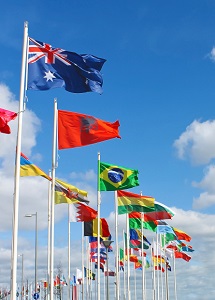Political Psychology
 Political psychology is the field of psychology dedicated to examining political systems, motives, and beliefs.
Political psychology is the field of psychology dedicated to examining political systems, motives, and beliefs.
What Do Political Psychologists Study?
Political psychology is an interdisciplinary field that includes elements of sociology, psychology, philosophy, politics, and history. Political psychologists study the psychological and individual factors that affect people’s political beliefs and choices, as well as psychological factors that affect political systems.
Examples of political psychology topics include:
- The psychological strategies, such as fear, hope, and patriotism political candidates and parties use to motivate the electorate
- Individual personality traits that affect a person’s political views
- How psychology affects group behavior
- The psychological traits of political candidates and political leaders
- Psychological traits that cause the electorate to like or dislike an individual candidate
- How non-political factors, such as weather, finances, family issues and health can influence a person’s decision to vote or alter who they vote for
- Understanding how psychological factors can affect an individual’s propensity toward politically-motivated behavior such as terrorism, protesting, or running for political office
How Do People Become Political Psychologists?
Political psychologists may be psychologists who have received training in social psychology or political psychology. Some political psychologists have no formal training in politics, but participate in continuing education or extensive reading about politics. Others may obtain dual degrees in psychology and politics or history.
Because political psychology is an interdisciplinary field, people who study political psychology may not be psychologists. Political strategists frequently use elements of psychology to help candidates mobilize voters. Sociologists may study political psychology to make predictions about group behavior. People with training in politics or history may incorporate elements of psychology into their research and training. There is significant overlap between organizational psychology and political psychology, as both fields study the behavior of people in groups. The International Psychology of Political Psychology is the primary membership organization for political psychologists. It publishes research in political psychology and organizes conferences for political psychologists.Reference:
- Colman, A. M. (2006). Oxford dictionary of psychology. New York, NY: Oxford University Press.
Last Updated: 08-18-2015